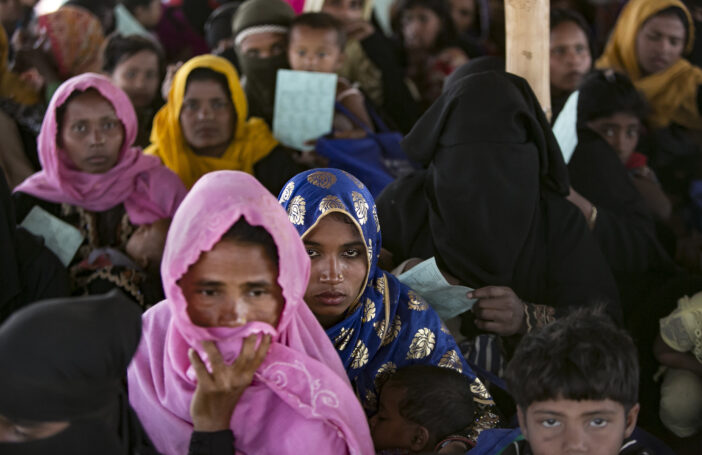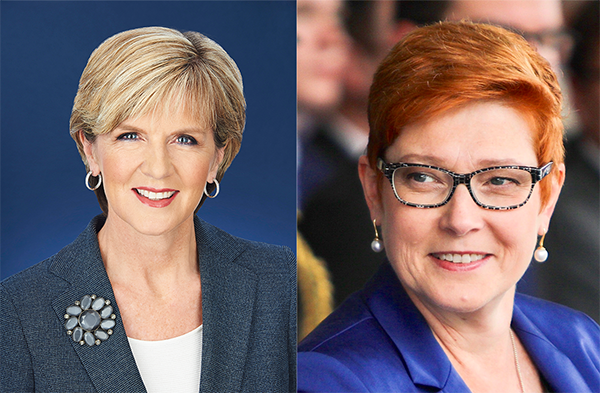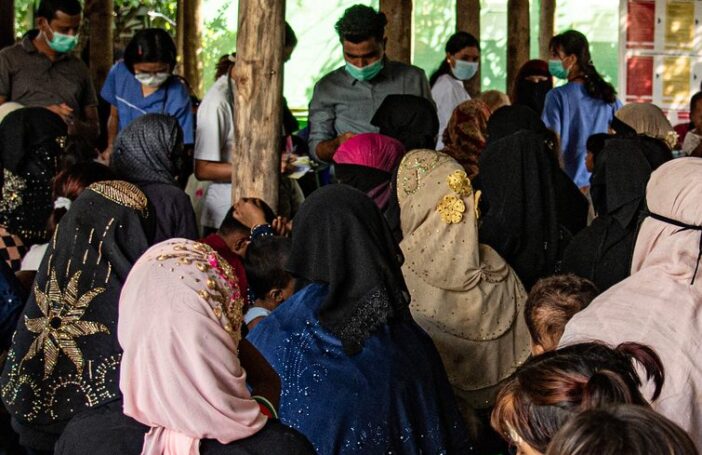It is not easy to identify from the Coalition Government’s 2015 budget papers where the brunt of the cuts in Australia’s aid program will be felt, and indeed Foreign Minister Julie Bishop has announced that the details of the changes in Australia’s aid ‘investments’ will be disclosed in September, presumably after all affected parties are informed.
However, one early cut to Australia’s aid program in Myanmar has already grabbed the headlines, in Australia and in Myanmar. The health services aid consortium, the Three Millenium Development Goals (3MDG) Fund, issued a statement in Yangon on 28 May 2015 about the Australian Government’s withdrawal of a commitment of US $42m (AUD $55m).[1] The statement was reported with some shock by media inside Myanmar: the Myanmar Times reported it under the headline ‘Australia drains health fund’s budget’; and Mizzima News reported it as ‘Nervousness mounts over Australia’s aid cuts to Myanmar’. No statement was issued by the Australian Government.
Although the original commitment to this program was made under the Gillard Labor Government in 2012, it was specifically reaffirmed by Julie Bishop in the 2014 budget, and remained the centrepiece of Australia’s humanitarian assistance to the Myanmar health sector. Both Labor and Coalition Governments made political mileage out of this significant commitment, and at the time the cut was notified to the parties in the multi-donor fund, Australia was apparently acting as chair of the donor group. Publicly available information on the progress of the 3MDG Fund suggests that it was judged an effective and successful program until the Australian decision to not proceed with the next commitment was announced.
One can imagine the dismay the Australian decision would have caused on the part of the Myanmar Government, which had fought long and hard to keep the scheme going after a premature and politically-driven US Congress decision in 2005 to withdraw from an earlier version of the program, the World Health Organisation’s Global Fund. But it is hard to envisage the reaction of Australia’s fellow donors, with whom Australia has already worked side by side for three years of the five-year program. The consequences for the 3MDG program cannot be trivial, although the 3MDG Fund statement says that the program overall will not be seriously affected.
Not only is this a rebuff to the Myanmar Government (which through its Ministry of Health promoted this ‘multi-donor fund’) but it also represents a breach of Australia’s pledge to fellow donors: the US, the UK, the EU, Sweden, and Canada. (Indeed this commitment was mentioned specifically in Australia’s bilateral development ‘partnership’ agreement with the EU.) There is no suggestion that Myanmar’s needs in the health sector are reduced or that the program itself is questionable.
This is perhaps a fairly typical case of the impact of an unexpected cut in aid funding by a donor. At the very least, it disrupts the careful planning and coordination of effort that has gone into the design of the health assistance program. At worst, funds anticipated as being committed to meet agreed health priorities for people in need are suddenly not available.
Trevor Wilson is a Visiting Fellow at the Coral Bell School of Asia Pacific Affairs, ANU.
[1] “The 3MDG Fund was established in 2012 to support the Ministry of Health’s plans to strengthen health systems and accelerate service delivery, particularly to the poorest and most vulnerable communities in Myanmar. It is supported by Australia, Denmark, the European Union, Sweden, Switzerland, the United Kingdom and the United States of America, and managed by UNOPS (United Nations Office of Project Services).” Source: 3MDG Fund





While the withdrawal of Australian commitments to the 3MDF Fund in Myanmar is extremely regrettable, there are serious inaccuracies in the following sentence that should be corrected: “One can imagine the dismay the Australian decision would have caused on the part of the Myanmar Government, which had fought long and hard to keep the scheme going after a premature and politically-driven US Congress decision in 2005 to withdraw from an earlier version of the program, the World Health Organisation’s Global Fund.”
First, there was no such entity as the World Health Organisation’s Global Fund. The author is probably referring to the Global Fund to Fight AIDS, Tuberculosis and Malaria, which has nothing to do with WHO.
Second, the US Congress had nothing to do with the decision by the Secretariat of the Global Fund to withdraw from Myanmar, an action recommended by the then Principal Recipient in Myanmar, the United Nations Development Programme.
Third, following the withdrawal of the Global Fund, a group of donors (including Australia) established the Three Diseases Fund for Burma, the forerunner of 3MDG. I was a member of the 3DF Board and it is quite an exaggeration to say that the Myanmar Government ” fought long and hard to keep the scheme going.” Indeed, between 2006 and 2012, the Government was hostile to the Fund because it did not channel funds directly to the Government. It obstructed access to field sites, tried to cancel the first annual review, and stationed security officers outside Board meetings.
Obviously, the political climate has changed and 3MDG is now welcomed by the Myanmar Government. Australia’s abrupt withdrawal from the Fund is short-sighted and will indeed affect relationships with the Myanmar Government and fellow donors. But let’s ensure that views are based on the facts.